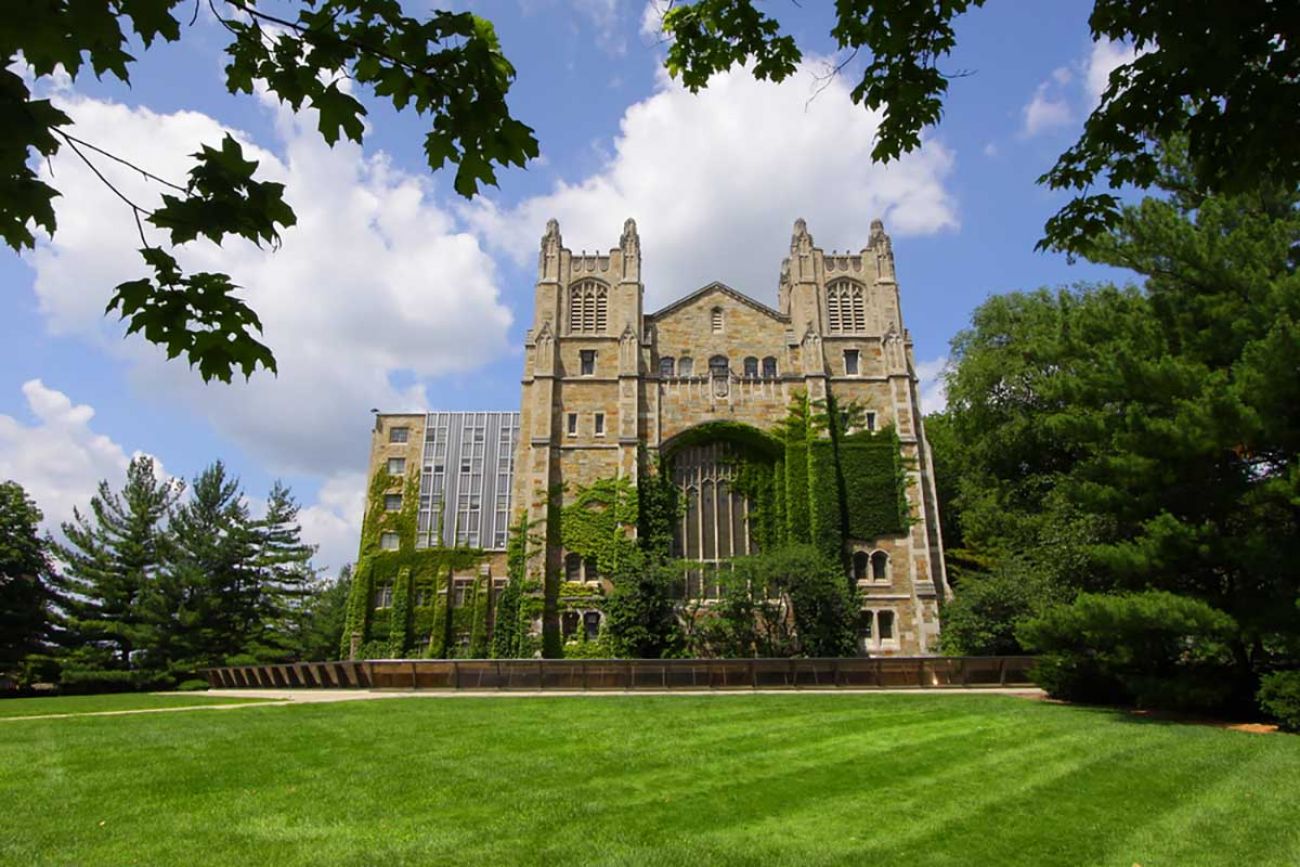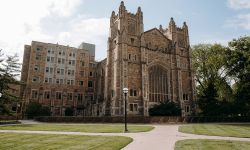As COVID spreads, University of Michigan’s 31,000 undergrads ordered to stay home

The Washtenaw County Health Department issued a stay-at-home order Tuesday for the 31,000 undergraduate students at the University of Michigan, as coronavirus cases in Ann Arbor threatened to spiral out of control.
Students are urged to stay in their dorm rooms or apartments through 7 a.m., Nov. 3, which is Election Day. They can leave for food (and bring it home to eat), to go to work or in-person classes, but not for gathering with friends. Students can also leave to vote, for exercise, medical appointments and to pick up prescriptions.
Health officials stressed that the order is not a quarantine, though students could face university sanctions if they are caught in violation of the terms of the order.
- COVID outbreaks in Michigan schools rise 25 percent in a week
- Michigan college freshman enrollment drops amid COVID. Will they return?
- Coronavirus cases surpass 5,000 in Michigan schools, colleges
- Michigan coronavirus unemployment, map, curve, COVID-19 updates
- Dashboard: Michigan coronavirus testing numbers, trends, COVID-19 data
“The situation locally has become critical, and this order is necessary to reverse the current increase in cases,” Jimena Loveluck, health officer for Washtenaw County, wrote in a news release announcing the order. “We must continue to do what we can to minimize the impact on the broader community and to ensure we have the public health capacity to fully investigate cases and prevent additional spread of illness.”
The stay-home order does not mention graduate students, and won’t affect the university’s football or other sports teams.
More than 600 confirmed and probable COVID-19 cases have been reported in Washtenaw County since Oct 12, with 60 percent connected to University of Michigan students living on or off campus, many in congregate or group settings, according to the health department.
In one week, from Oct. 12 to 19, the number of new cases reported in Washtenaw County almost doubled, from an average of 35 a day, to 67 a day.
According to the U-M coronavirus dashboard on the school website, there have been 303 university-connected cases confirmed just since Oct. 11. Since the beginning of the school year, there have been 364 cases in dorms, including 92 in Mary Markley, 85 in South Quad and 74 in West Quad.
U-M said Tuesday it is planning to virtually eliminate in-person classes for the remainder of the fall semester.
“The intent is to only continue with those in-person classes where there is no other alternative,” said U-M spokesperson Rick Fitzgerald. One example, Fitzgerald said, was an undergrad dental hygiene program.
Those living in dorms will have the option of leaving Ann Arbor for the remainder of the semester and getting a prorated refund on their residence hall and meal plans.
Encouraging students to leave campus for their hometowns is not recommended by Dr. Anthony Fauci, director of the National Institute of Allergy and Infectious Diseases. Fauci told NBC’s “Today” show in September that sending students home is “the worst thing you could do,” because it increases the chance of spread.
According to a letter sent to students Tuesday by U-M President Mark Schlissel, students who live in university housing can only leave campus for their hometowns if they first test negative for COVID-19 and follow checkout rules, “to lower the risk that they might carry disease home with them.”
“The university has been working closely with the Health Department all along in response to the pandemic and supports this decision to issue this stay at home order,” Robert Ernst, executive director of U-M’s University Health Service and associate vice president for Student Life, said in a statement.
“This action is intended to reduce the strain on our capacities for contact tracing and quarantine and isolation housing. Many individuals and off-campus residences are cooperating fully, and we hope this additional guidance on limiting social activities reverses the trend of increased cases related to social gatherings.”
Michigan State University students faced a similar order Sept. 12, when the Ingham County Health Department ordered a stay-home recommendation for that school’s approximately 38,000 students who were living in East Lansing, when MSU was experiencing a spike in cases.
According to the Michigan Department of Health and Human Services, there are 1,622 confirmed coronavirus cases linked to new or ongoing outbreaks at MSU, and 836 at U-M.
MSU closed its residence halls in the days leading up to the fall semester, and encouraged students who were planning to live on campus to stay home. That still left about 38,000 students who live off-campus in East Lansing, most of whom were locked into leases for the school year. Ingham health officials blamed off-campus parties for an early-September spike in infections that led to the quarantine of several dozen fraternities, sororities and off-campus housing units.
The University of Michigan reopened its dorms, and through September, appeared to have escaped a surge of coronavirus cases that had swamped other Michigan campuses. Now, cases have leveled off at MSU, but are spiking in Ann Arbor.
In his letter to students, U-M President Schlissel acknowledged infections were rising on the campus, but pointed out that the increased cases had not resulted in increased hospitalizations or death rates. Schlissel said many of the cases can be traced to small and medium-sized parties.
U-M senior Zoey Horowitz told Bridge Michigan she found the announcement “jarring,” since the university’s communications with students have remained “upbeat.”
“There’s been no alarming news from their end,” Horowitz said. “It’s all been pleasant.”
If cases continue to rise, the stay-home order may be extended beyond Nov. 3.
“I’m surprised it took this long,” Horowitz said. “You walk around, and you see things aren’t that different” from pre-pandemic days.
Horowitz questioned why students were being told to stay in their dorm rooms and apartments, while football games will still be played. No fans will be allowed in the stadium, but that’s unlikely to stop partying around campus, which Horowitz said has been “business as usual.”
“The MSU game is on Halloween,” she noted. “That’s a recipe for disaster.”
Michigan Education Watch
Michigan Education Watch is made possible by generous financial support from:
Subscribe to Michigan Education Watch
See what new members are saying about why they donated to Bridge Michigan:
- “In order for this information to be accurate and unbiased it must be underwritten by its readers, not by special interests.” - Larry S.
- “Not many other media sources report on the topics Bridge does.” - Susan B.
- “Your journalism is outstanding and rare these days.” - Mark S.
If you want to ensure the future of nonpartisan, nonprofit Michigan journalism, please become a member today. You, too, will be asked why you donated and maybe we'll feature your quote next time!






